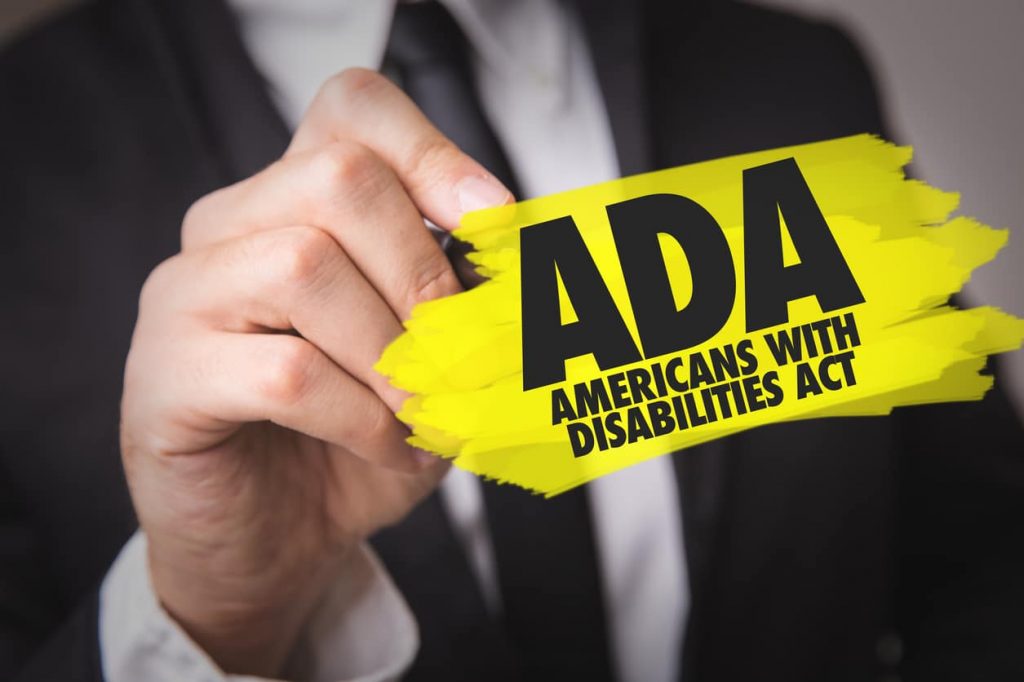It’s generally recognized that the Americans with Disabilities Act (ADA) protects individuals with disabilities from employment discrimination, but less well-known is that the ADA also protects employees who are not disabled but are perceived as being so by their employer.
ADA Definition Of “Disability”
The Equal Employment Opportunity Commission (EEOC) enforces the ADA and its guidance clarifies that to be protected from discrimination a person must be qualified for the job and have a disability as defined by the law.
The EEOC notes that a disability can be established in one of three ways:
- A person has a disability if they have a physical or mental condition that substantially limits a major life activity (such as walking, talking, seeing, hearing, or learning, or operation of a major bodily function)
- A person has a disability if they have a history of a disability (such as cancer that is in remission)
- A person has a disability if they are subject to an adverse employment action and is believed to have a physical or mental impairment that is not transitory (lasting or expected to last six months or less) and minor (even if he or she does not have such an impairment)
The third option is the focus here and under the ADA Amendments Act of 2008 (ADAAA), individuals who have an action taken against them because they are regarded as having a physical or mental impairment have a claim for discrimination. This is true regardless of whether “the impairment limits or is perceived to limit a major life activity.” 42 U.S.C. 12102(3)(A).
As a result, an employee may be “perceived as” disabled even if the alleged impairment does not limit any life activity, which is a key distinction from a disability discrimination claim involving an actual disability. If, however, the perceived impairment lasts (or is regarded as lasting) six months of less, then this does not apply. 42 U.S.C. 12102(3)(B).
Examples Of “Regarded As” Disabled Lawsuits
In Robinson v. First State Community Action Agency, No. 17-3141, (3rd Cir. April 1, 2019), a manager told the employee that they either did not know what they were doing (work-wise) or they had dyslexia. The employee then requested certain accommodations for dyslexia and soon after the employer fired them. The jury found that the employer regarded the employee as disabled and awarded damages, which the appellate court affirmed.
Eshleman v. Patrick Industries, Inc., No. 19-1403, (3rd Cir. May 29, 2020), involved an employee who alleged the employer regarded them as disabled because they took two months of leave for a lung biopsy procedure and two vacation days for an upper respiratory infection. The trial court found that the “regarded as” disabled claim must fail because the impairment lasted less than six months and thus was “transitory and minor.” See 42 U.S.C. 12102(3)(B). The appellate court, however, reversed because the lower court had not analyzed whether the impairment was both transitory AND minor. Thus, even if brief, the impairment may still be covered if it is relatively serious.
Equal Employment Opportunity Commission v. STME, LLC, Nos. 18-11121, 18-12277 (11th Cir. Sep. 12, 2019), dealt with an employee who was fired because her employer thought she may contract Ebola during a trip abroad. The Eleventh Circuit held that the employee was not “regarded as” having a disability. According to the appellate court, while the ADA prohibits discrimination because of a current (or past) perceived disability, this does not extend to a potential future disability that a healthy person may experience at a later time.
COVID-19 And “Perceived As” Disabled Claims
The interplay between COVID-19 health conditions and ADA “perceived as” disability discrimination claims is going to be a hot topic. The EEOC has issued guidance related to this, including the question of whether an employer may withdraw a job offer because, for example, the employee is 65 year old or pregnant, both of which put them at a higher risk to contract COVID-19.
 The EEOC states that: “No. The fact that the CDC has identified those who are 65 or older, or pregnant women, as being at greater risk does not justify unilaterally postponing the start date or withdrawing a job offer. However, an employer may choose to allow telework or to discuss with these individuals if they would like to postpone the start date.”
The EEOC states that: “No. The fact that the CDC has identified those who are 65 or older, or pregnant women, as being at greater risk does not justify unilaterally postponing the start date or withdrawing a job offer. However, an employer may choose to allow telework or to discuss with these individuals if they would like to postpone the start date.”
The result in EEOC v. STME, LLC, in which the court said ADA discrimination claims do not extend to a potential future disability that a healthy person may experience later, suggests that there will be competing views on how to treat these claims in the courts and that much ink will be spilled on this topic going forward.
